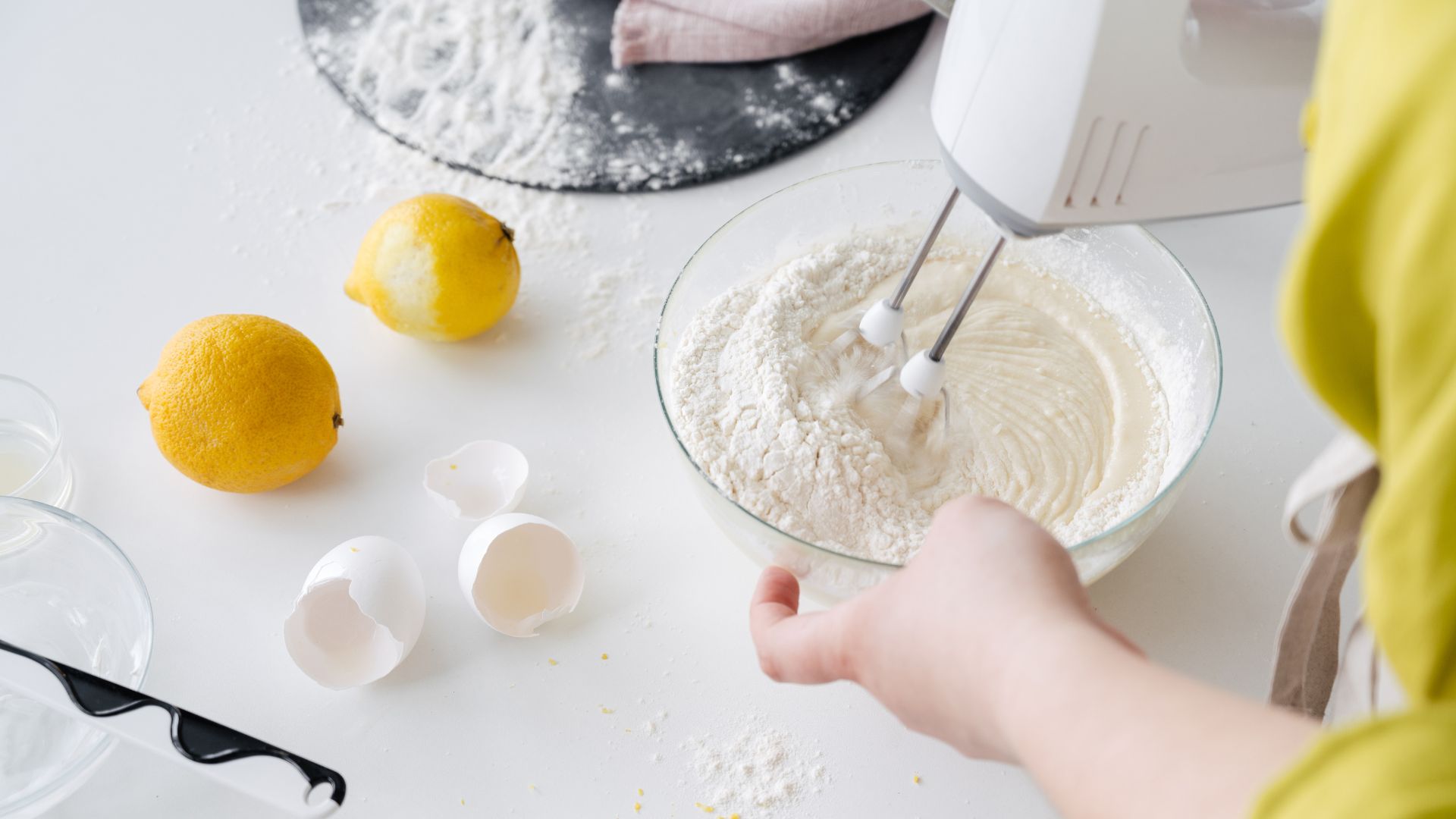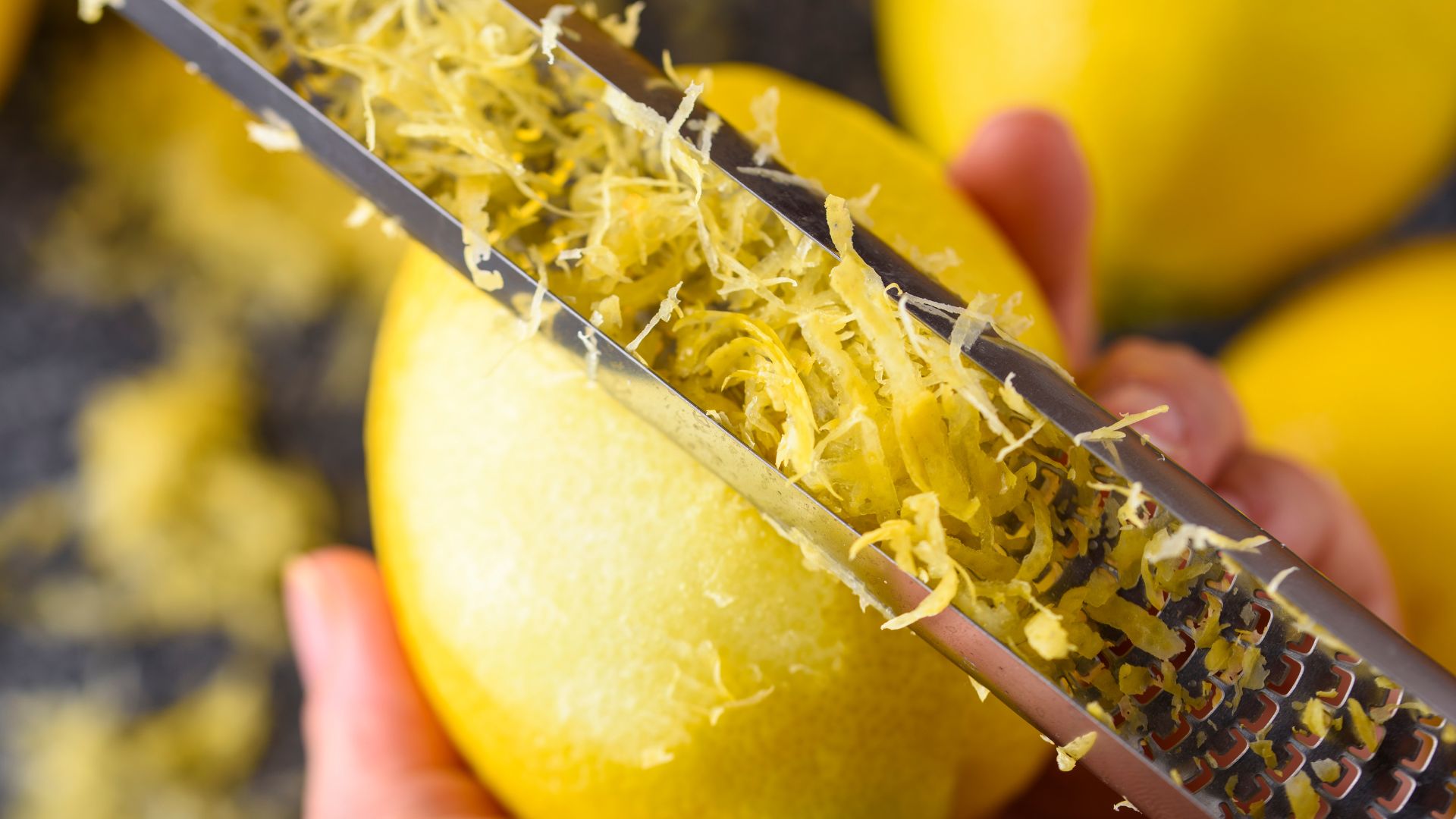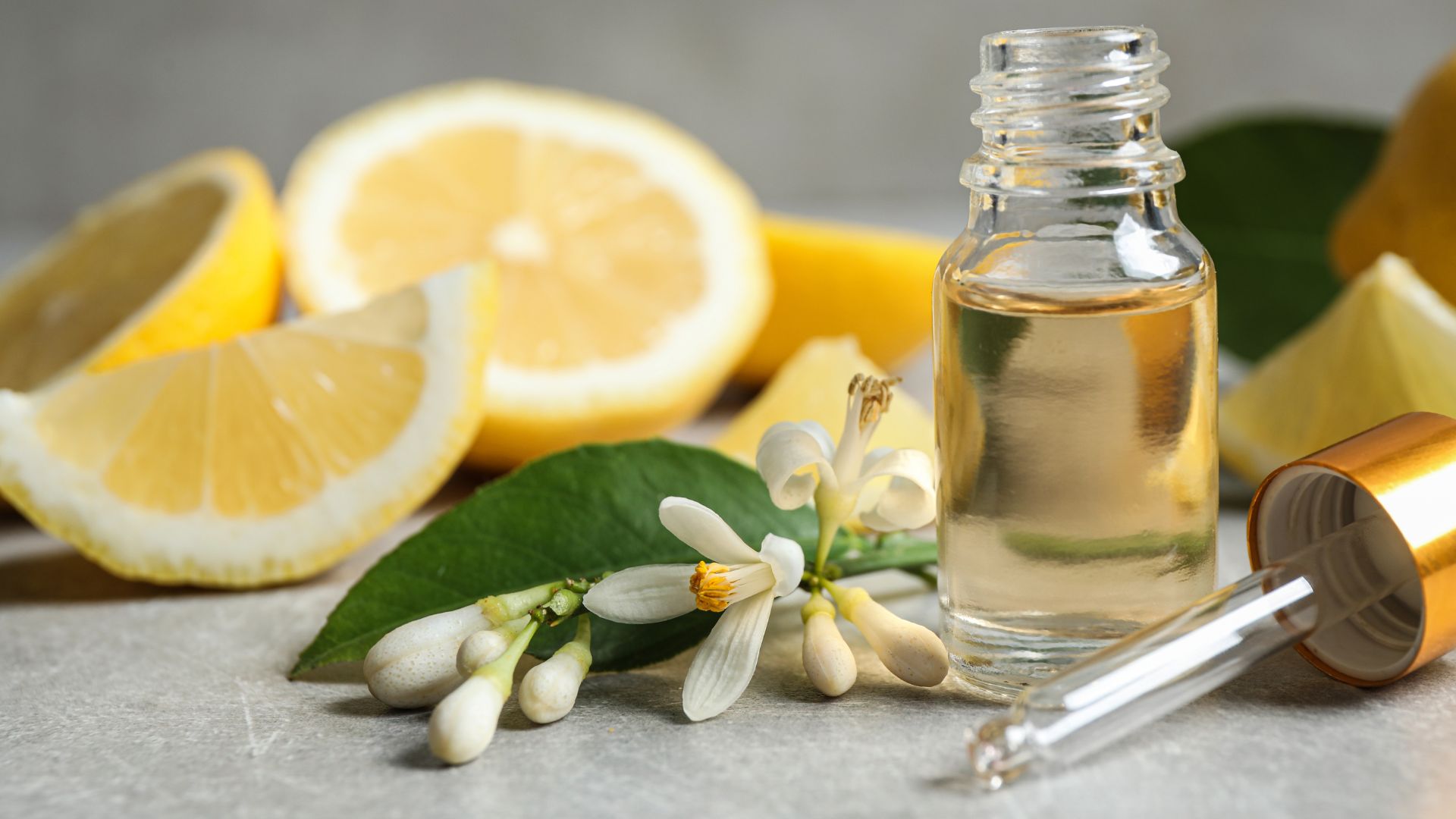Last Updated on January 5, 2023
Today we will look at how much lemon extract to add to cake mix. Not only will we give a general range, but go into more specific scenarios.
We will also give you a quick overview of what exactly extract is and how it differs from other flavorings on the market. And finally, we’ve answered some frequently asked questions as well!
The information in this article will help enable you to make an easy lemon cake recipe with cake mix.
What Is Lemon Extract?
People laugh when we ask “what exactly is an extract?” But you won’t believe how many wrong answers we get! Yes, an extract is a type of food flavoring. But it differs from lemon concentrate, lemon oil, and lemon essence.
Lemon extract is made from natural flavorings (usually lemon peel). It also has a natural color and very few of these products are artificially colored.
The natural flavors from the lemon peel are infused directly into alcohol (sometimes a mixture of alcohol and water). Its flavor is extremely potent and you don’t need a lot to produce a strong lemon flavor.
Lemon essence on the other hand is arguably the weakest flavoring you can find. It’s also commonly referred to as “flavoring.”
An essence made with artificial and chemical flavorings and colorings. It’s entirely synthetic. The base into which these flavors are infused is often oil, alcohol, glycerin, or water.
A concentrate is usually oil-based. It differs from lemon oil in that it is much more concentrated.
The natural oils from the lemon peel (which contain a very strong lemon flavor) are extracted. These can be bottled as-is or infused into a neutral oil base. The lemon concentrate has an extremely prominent flavor. You only need to use a droplet or two. The downside is that it is hard to find and expensive.
Lemon-flavored oil is just cooking or baking oil, infused with any type of lemon flavor. Large quantities of this oil are used. This product isn’t used for cake mixes.
So, now that you know what you are working with and what an extract is, let’s take a look at how much lemon extract to add to cake mix.
What Will Affect How Much Lemon Extract To Add To Cake Mix?
To many people, the answer is pretty straightforward. But there are actually a few factors that will affect the final amount to make the perfect, well-balanced lemon extract cake recipe. Before getting into the exact amount you need, let’s first take a look at what will affect it the most.
First, think about what flavor cake you want. This is probably the most important consideration you have to make. If you want to make a lemon-flavored cake, you will obviously need to add more lemon extract to the cake mix.
But, if you simply need the lemon extract to function as a flavor balancer, you won’t necessarily need to add as much extract.
Lemon is a very prominent flavor. So a little goes a long way. if you add too much, it may just turn a cake into a lemon-flavored cake.
Then, you also have to consider how the amount you add will affect the consistency of the cake batter. Usually, with extracts, you don’t need to add a lot. However, if you want a lemon-flavored cake, you will need to add more.
But, you still shouldn’t go wild with the extract. It may just make the batter too runny.

How much lemon extract to add to cake mix
If you want to balance the flavor of a cake, you only need to add between 1/2 and 1 teaspoon of lemon extract.
But, if you are making a lemon-flavored cake using a cake mix, you may want to add more. Depending on what your personal preference is, the amount can be anywhere between 2 teaspoons (10ml) to a tablespoon (15ml).
If you have already added lemon juice to the cake mix, you shouldn’t add too much lemon extract. We’d say only add 1/2 teaspoon for every 1 tablespoon of lemon juice you’ve added. This way you will have the acidity from the freshly squeezed lemon juice and the prominent lemon flavor from the extract.
And finally, if you are working with the lemon-flavored mix, you should also be careful of how much lemon extract to add to cake mix. Usually, 1/2 teaspoon to 1 full teaspoon will be adequate. Anything more and you may create a cake flavor that is mainly acidic and tart.
Pretty easy to remember right? Now you can confidently decide how much lemon extract to add to cake mix.
Does lemon extract have any functions in cake mix?
The lemon extract does not perform any functions when added to cake mix. It is a concentrated flavoring that isn’t very acidic.
The only function it has is adding flavor. The reason this is a relevant question is that people think it will act in the same way as lemon juice.
Can You Add Lemon Juice To Cake Mix?
Lemon juice also (obviously) adds a lemon flavor. But, lemon juice is functional. It is highly acidic which enables it to act as a tenderizer for cake.
It can also help stabilize a batter and can function as part of a natural leavening combination. for example, if you add an alkaline ingredient (like cream of tartar) needs an acid (like lemon juice) to activate and create a leavening effect.
Can You Use Lemon Zest Instead Of Lemon Extract?
Lemon zest is pretty similar to lemon extract. After all, as we’ve explained earlier in this “how much lemon extract to add to cake mix” article, an extract is made from the peel (zest) of lemons.
If you want to replace lemon extract with lemon zest, use 1 teaspoon of zest for every 1/2 teaspoon of lemon extract you are replacing. Remember, the zest has some texture to it. This texture won’t go away once it is added to the cake mix or when it has been baked.

In Conclusion: How Much Lemon Extract To Add To Cake Mix
To recap how much lemon extract to add to cake mix: to help balance the flavor of a cake, add 1/2 – 1 teaspoon of extract. To create a lemon-flavored cake, add 2-3 teaspoons of extract. And if you are adding it to a lemon-flavored cake mix, add 1/2-1 teaspoon only.
We hope that you’ve found this article on making lemon cake with lemon extract helpful. Make sure to check out some of our other educational articles on our website.

Lindy Van Schalkwyk is a culinary specialist with a background in Advanced Cooking, Advanced Pâtisserie, Media Communications and Nutrition. She has gained invaluable experience in the culinary industry having worked in some of the top restaurants in Africa in 2016 and 2017. Her expertise in nutrition has enabled her to develop recipes for special dietary needs. In 2018, Lindy began working in the Food Media industry, focusing on recipe development, recipe writing, food writing and food styling.


